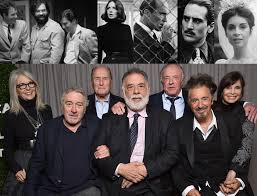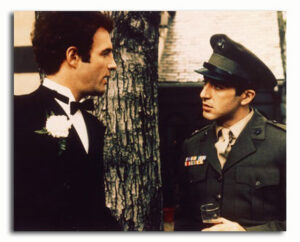
Why The Godfather is Considered a Masterpiece?
From its groundbreaking performances to its iconic score, here’s everything that makes The Godfather so special.
Few films have stood the test of time quite like The Godfather. Released over 50 years ago, the movie remains a cultural touchstone, continuing to captivate audiences and critics alike. At the time of its release in 1972, The Godfather was a groundbreaking film. Directed by Francis Ford Coppola, the movie tells the story of the Corleone crime family, led by patriarch Vito Corleone. The film’s impeccable cast, including Al Pacino and James Caan, helped to bring the story to life, while the film’s iconic score, composed by Nino Rota, became a cultural phenomenon in its own right.
Despite its age, The Godfather remains a beloved classic. The film has inspired numerous sequels, spinoffs, and imitators, and its influence can be felt across the entire film industry. But why does the movie continue to resonate with audiences so strongly? What sets The Godfather apart from other films of its era, and how has it managed to remain relevant for so many years? From its award-winning performances to its iconic score, we’ll explore everything that makes this film so special.
The Outstanding Characters

One of the key factors that have contributed to The Godfather’s success is the depth and complexity of its characters. The movie tells the story of the Corleone family, a powerful Mafia dynasty, and its patriarch, Vito Corleone, played by Marlon Brando. The supporting cast includes Al Pacino, James Caan, and Robert Duvall, among others.
Each character in The Godfather is fully realized, with his or her own motivations and desires. The interactions between the characters are nuanced and often fraught with tension, reflecting the complexity of real-life relationships. The character of Michael Corleone, played by Pacino, is particularly noteworthy, as his transformation from outsider to ruthless Mafia boss is one of the movie’s central themes.
The Portrayal Of Complex Themes

The Godfather explores a number of themes that have resonated with audiences over the years. The movie is a meditation on power, family, and loyalty, and it asks questions about what people are willing to do to protect those they love. The portrayal of the Mafia as an organization with a strict code of honor also fascinated audiences, as did the movie’s exploration of the immigrant experience in America.
These themes continue to resonate with audiences today, as The Godfather remains as relevant as ever. Its status as a masterpiece is secure, and its place in the cinematic canon is assured. As we continue to explore the movie’s legacy and impact, we can be sure that The Godfather will continue to fascinate and inspire audiences for generations to come.
The Breathtaking Cinematography

One of the hallmarks of The Godfather is its masterful use of cinematography. From the opening shot of the film, it is clear that every frame has been carefully composed to tell the story visually. The use of shadows and lighting creates an atmosphere of tension and foreboding throughout the film, emphasizing the dark, dangerous world of organized crime.
Several scenes in the movie have become iconic, in no small part due to the cinematography. The baptism sequence, for example, juxtaposes images of a solemn religious ceremony with scenes of brutal violence, demonstrating the power and reach of the Corleone crime family. Similarly, the final scene of the film, in which Michael Corleone sits alone in his office as his family members kiss his hand and pay homage to him, is a powerful statement of his newfound power and dominance.
The Unforgettable Music
Another key component of The Godfather is its music, composed by Nino Rota. The film’s main theme, with its haunting melody and evocative strings, has become one of the most recognizable pieces of film music ever written. The score perfectly captures the emotional impact of the movie, adding a sense of grandeur and melancholy to the already powerful story.
One of the most notable aspects of the music in The Godfather is how it is used to signify character development. In the beginning of the film, the Corleone family’s theme is a lighthearted and almost whimsical tune, reflective of their relatively benign place in the criminal underworld. As the film progresses and Michael takes over the family, the theme becomes more ominous and foreboding, reflecting his increasing power and the darker turn the story takes.
The Godfather’s Legacy in Cinema
Finally, it is impossible to discuss The Godfather without acknowledging its massive impact on subsequent movies and popular culture. The film has spawned countless imitators and parodies, from The Sopranos to The Simpsons. Its influence can be seen in the work of contemporary directors like Martin Scorsese and Quentin Tarantino, both of whom have cited The Godfather as a major influence on their careers.
Yet despite its pervasive influence, The Godfather remains a singular achievement in the world of cinema. The story of the Corleone family is a timeless one, exploring themes of power, loyalty, and family that resonate with audiences of all ages. And with its masterful use of cinematography and music, The Godfather continues to captivate and inspire viewers over 50 years after its initial release.
